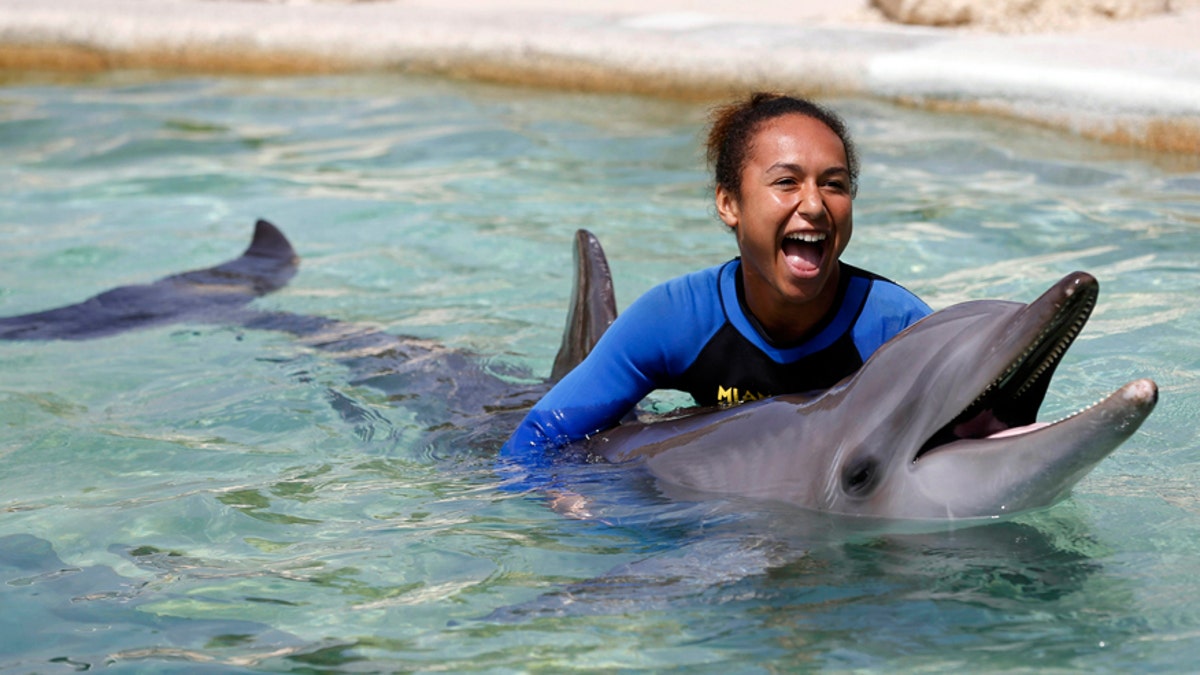
Aquariums say PETA convinced TripAdvisor to stop booking certain attractions. (Reuters)
Just when you thought you couldn’t adore dolphins any more, a new biology study has revealed just how human-like they really are.
A study of 17 adult male bottlenose dolphins in Shark Bay, Western Australia, discovered they are the only animal in the world to give a name to members in their social circle, akin to humans.
“Retaining individual names is more important than sharing calls as it allows dolphins to negotiate a complex social network of cooperative relationships,” lead scientist Stephanie King said.
The research, which was published this week in the journal Current Biology, found that unrelated males team up in groups of two to three, a tactic that improves their chances of breeding with females.
These male duos and trios, who become like best friends, then build more second-level alliances — forming a friendship group — which can last their entire lifetime.
Males create their own signature whistle for each other, which is the closest thing to a human name.
There could be many dolphins in the ocean who have the same name but allies always give different names to those in their friendship circle.
“These individual vocal labels, or ‘names,’ allow the animals to develop complex social relationships,” King said.
Their closeness also extends to their physical touch.
The study revealed male dolphins spend a lot of time caressing each other with their pectoral fins, as if they are holding hands. Drone footage has also revealed they may even swim with their fins laying on top of each other.
Another way in which they build their bonds is through synchronized movements.
“Synchrony has also been linked to oxytocin release in humans, which promotes trust and co-operation,” King said.
It has been widely known since the 1960s that both male and female bottlenose dolphins have their signature whistles, but King discovered the calls were tailored to individual dolphins when she started playing the whistles back to the animals themselves.
She found that dolphins responded to recordings of their own signature whistle, but not those of other dolphins.
This story originally appeared in news.com.au.




















